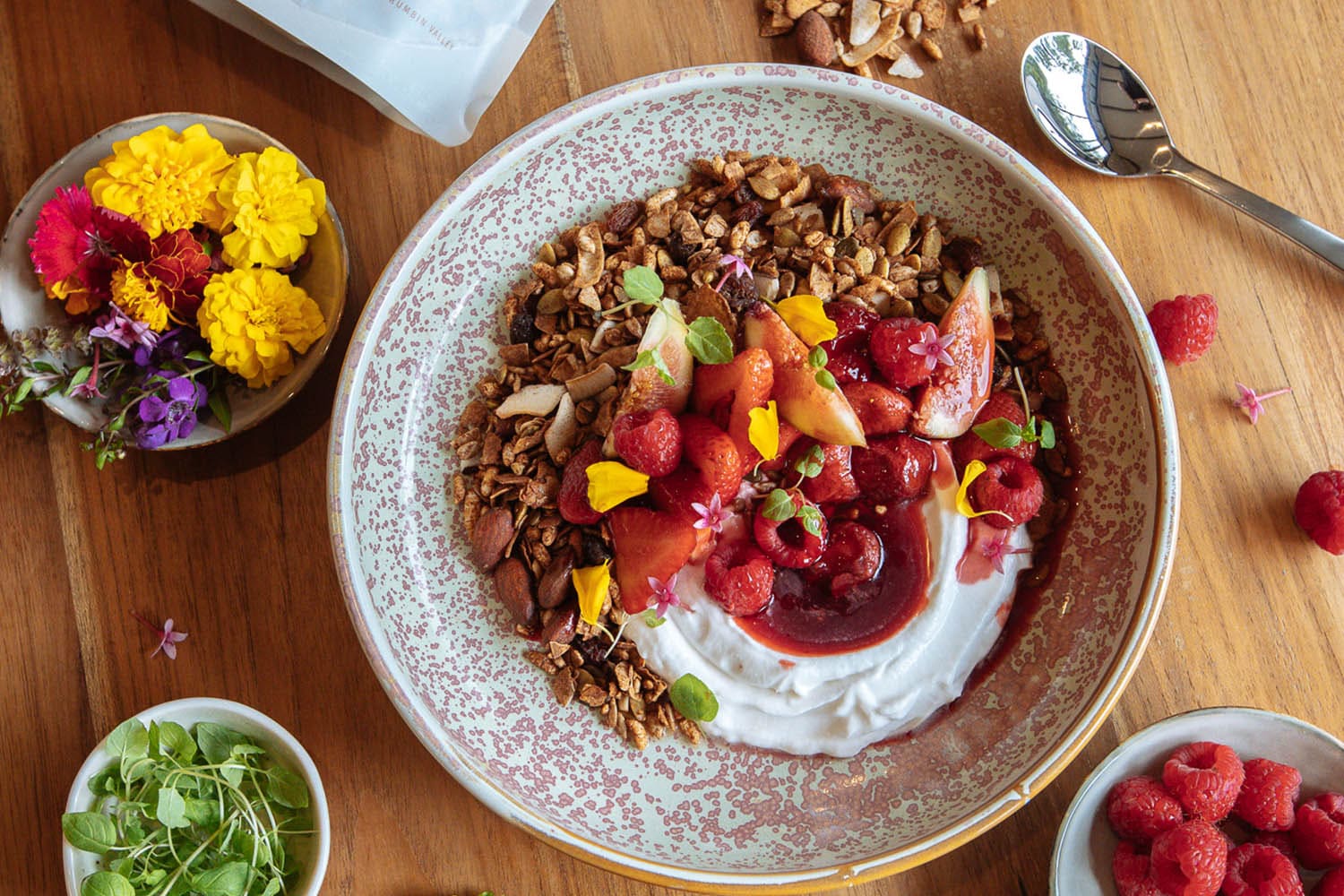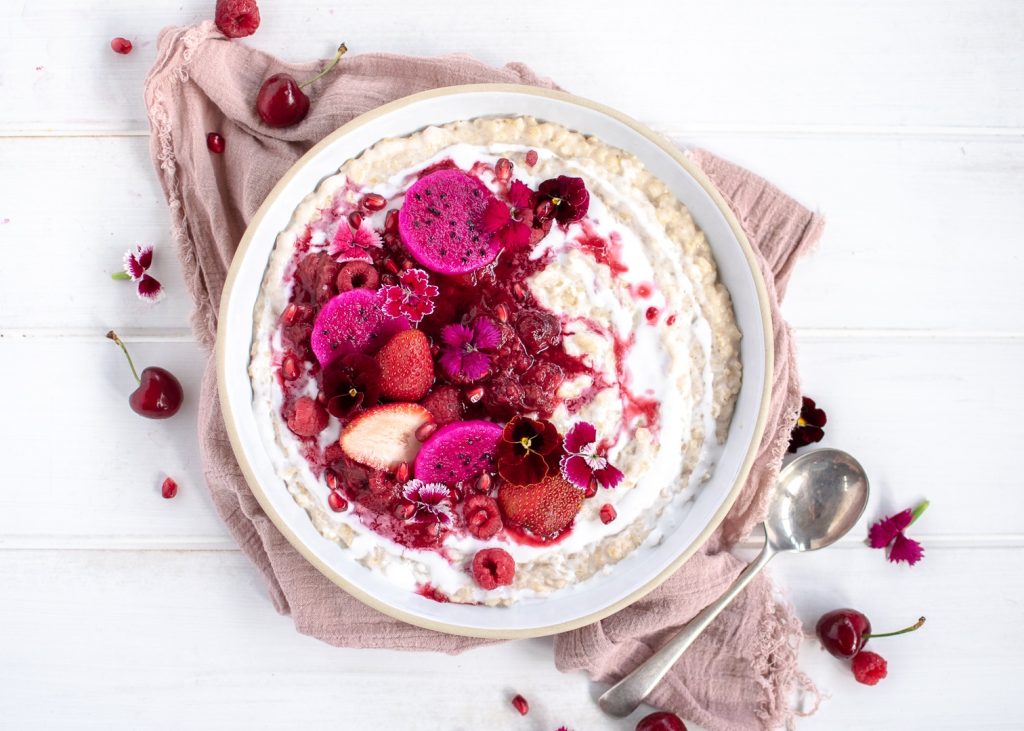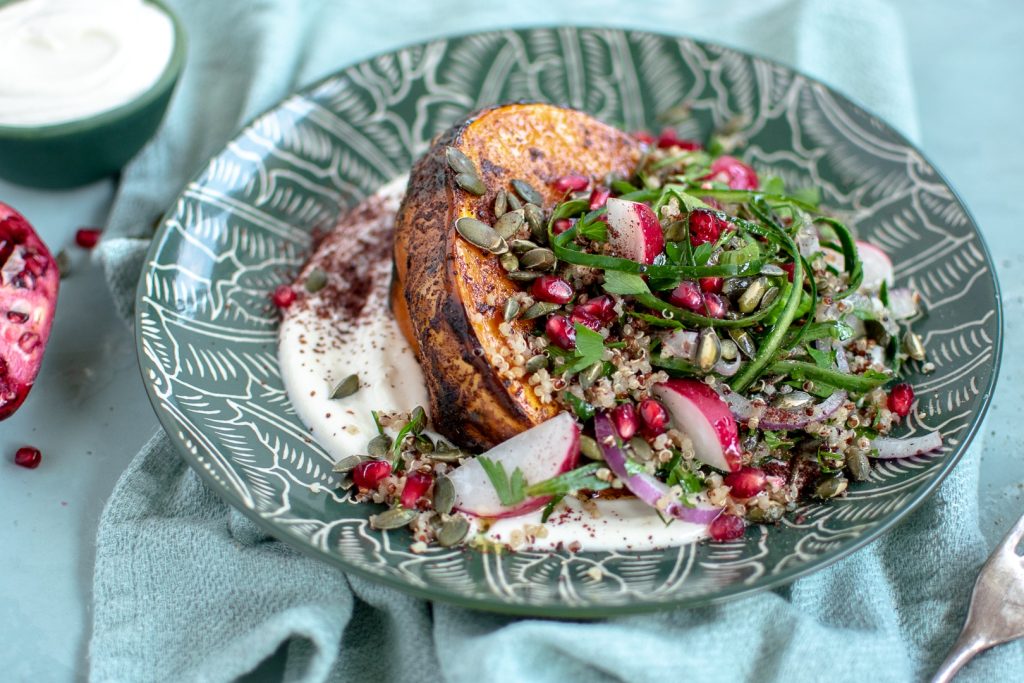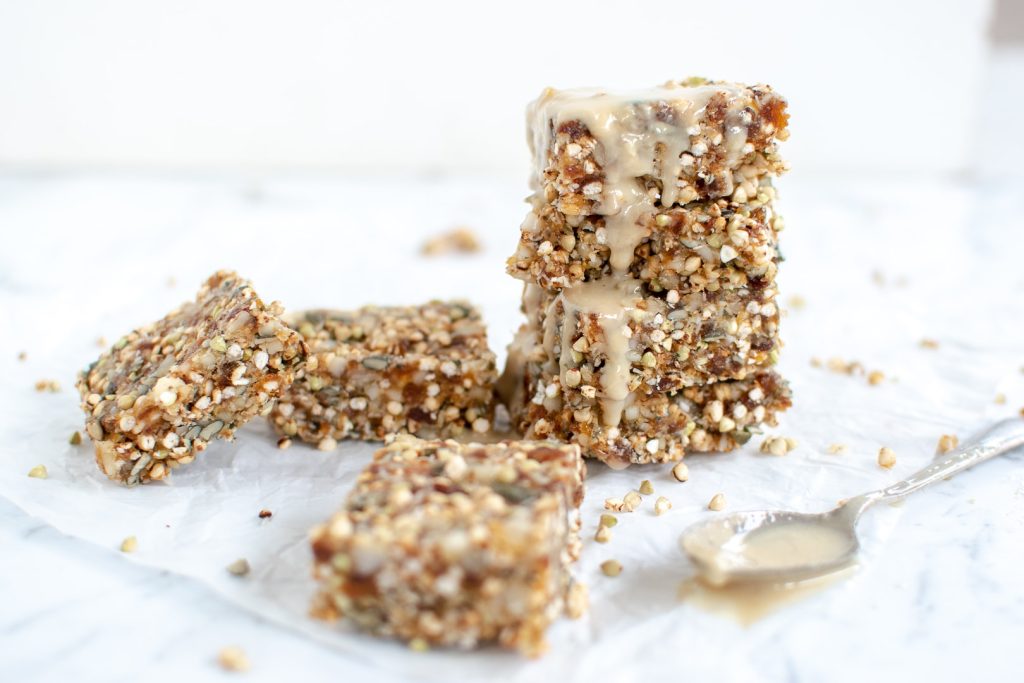At Eden, we pride ourselves on our health-focused culinary experience that includes a wide range of plant foods – much of which is picked from our very own garden. In acknowledgement of World Vegan Day, we wanted to share how including more plant-based foods into your diet each day can optimise your wellbeing dramatically.
Why you should include more plant-based foods in your diet
Plant-based foods are an essential component of a healthy diet. Below are just some of the reasons why:
Reduces the risk of disease
Diets inclusive of a diverse range of plant-based foods can help to lower blood pressure, improve cholesterol levels and reduce the risk of Type 2 Diabetes, all of which are factors in heart disease.
Provides a variety of nutrients
Plant-dense diets provide more fibre, antioxidants and beneficial plant compounds that help keep our bodies healthy and contribute to the healthy function of a huge range of bodily processes, such as the immune system, blood formation, energy, vision, bone health and nervous system function. Some vitamins and minerals that are particularly plentiful in plant foods include:
- Potassium: Supports regular water and electrolyte balance, nervous system function and muscle function.
- Magnesium: Supports muscle and nerve function and energy production.
- Folate: Supports normal blood formation, immune system function, healthy cognitive function and reduces fatigue.
- Vitamins A, C, and E: Supports immune system function, vision and skin health.
Aids weight management
The naturally high fibre content of plant foods means that they help increase our satiety (the feeling of being full). Not only does this help comfortably manage our calorie intake, it also helps us avoid those foods that are high in calories but lacking nutrients, which we can easily over-consume as we are not receiving the feeling of satisfaction we’re after.

Tips to incorporating more plant foods in your diet
Below are some of our suggestions to start including more plant-based foods into your diet in a way that is manageable and easy to fit with your current lifestyle.
1. Begin by making small changes
Making those first changes to your diet can be overwhelming, but any step in the right direction makes a difference. Start as small as you feel comfortable with and gradually build more plant-based foods into your diet as you become more familiar with the incredible variety of foods and flavours that you can cook with. Try swapping out parts of meals for plant-based alternatives, experiment with different protein sources or opt for plant-based snacks. You’ll be replacing whole meals or having meat-free days in no time!
2. Strive for variety in your menu
Eating a variety of diverse, wholesome foods is one of the most effective ways to ensure you’re giving your body all the dense nutrients it requires. Different coloured fruits and vegetables hold different vitamins, minerals and phytochemicals (the plant chemicals that give fruit and veggies their colour and flavour). A colourful plate will not only help replenish any nutritional gaps in your diet but will also make the journey all the more exciting and enjoyable!
Plus, keep your menu interesting by experimenting with different herbs for added taste, variety and even spice. Herbs also contain healing properties and can be used instead of saltier condiments.
3. Don’t be afraid of fats!
The craze of ‘fat-free’ foods has trained many of us to recoil at the mention of the dreaded f-word, but the reality is that good fats are an essential part of a healthy, balanced diet. In fact, they play an important role in a number of important bodily functions, such as regulating our moods, fighting fatigue, managing our weight and improving mental clarity, as well as lowering the risk of more serious threats to our health such as heart disease or stroke. Olive oil, nuts, seeds and avocados are some fantastic plant-based sources of fatty acids.
4. Receive sustainable energy from high-quality grains
Grains are an important foundation of any diet. Being naturally high in fibre, they help us to feel full and satisfied from our meals, which in turn can help with weight management. Whole grains contain the most dense nutritional value, containing a range of nutrients including B vitamins, antioxidants, iron, zinc, copper, magnesium and some protein. Try starting the day with oatmeal, quinoa, buckwheat, or a bowl of our delicious Goodness Granola. Then add some nuts or seeds along with fresh fruit for slow-releasing, sustainable energy for the day ahead.

5. Experiment with different protein sources and plant-based substitutes
Pulses such as kidney beans, soybeans, chickpeas and lentils are great sources of protein and are also rich in carbs, B vitamins, iron, calcium and zinc. They are also affordable, high in fibre and release their energy gradually. Additionally, there are an increasing number of faux meats available that are typically made from soy, pea or grain proteins that you can substitute in your favourite meals.
Making a start
Incorporating more plant-based foods into your diet doesn’t require a significant lifestyle change – simply a shift in the balance and variety of foods that you normally consume. In fact, you can start making those small changes today. Below are some of our plant-based recipes from our recipe ebook A Taste of Eden.
Breakfast: Creamy Coconut Porridge with Seasonal Fruit

Lunch / Dinner: Warm Pumpkin and Quinoa Salad with Tahini Yoghurt

Snack: Apricot and Tahini Muesli Bars

If you love the look of these or would like to try some of our other recipes, click here to download a copy of A Taste of Eden for free.





